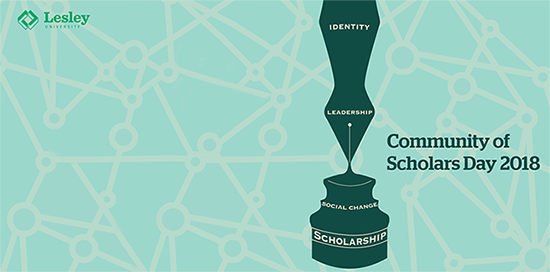Critical Literacy of Graphs in a Lesley Diversity Course: Another Kind Visual Literacy
Abstract
Gorksi and Slawell (2015) argue that preparing teachers for diversity requires more than simply teaching “cultural competence”. We need educators who can critically analyze and address bias and inequity. The work of scholars such as Paul Freire (1970), Freebody and Luke (2002), and (Eric Gutstein) echo these principles of critical literacy. Critical literacy, in our conceptualization, engages students in the critique of power and positionality in not only traditional texts, but media, numbers, inquiry approaches, and graphs, for the purpose of social action.
Our action research explores how critical literacy might enhance the curriculum and instruction in an undergraduate diversity course. In 2017 the two of us, Dr. Summer Clark and Dr. Roser Giné (literacy and math professors), engaged in a cross-disciplinary collaboration, to infuse critical math literacy into the curriculum of the Lesley course, “Embracing Diversity in Classroom Communities”. We enacted a specific pedagogy based partially on a Frierian model, collected data on the enactment, and are currently analyzing our data.
In this workshop we present a brief overview of our research and our initial findings. Then we take the audience through a sample critical literacy lesson, to gain additional insight on how our pedagogical approach may operate in varying contexts. Then we will engage our audience in critically analyzing mathematical graphs as we model teaching methods such as: graffiti to document ideas during discourse, and critical literacy questioning techniques during analysis of research.
References
Freebody, P., and Luke, A. (2002). Literate Futures: Reading. State of Queensland: Department of Education.
Freire, P. (1970). Pedagogy of the Oppressed. New York: Seabury.
Gorski, P. & Swalwell, (2015). Equity literacy for all. Educational leadership, March 2015. 34-40.
Gutstein, E. (2013). Rethinking mathematics: Teaching social justice by the numbers. Milwaukee, WI.
Start Date
28-3-2018 9:10 AM
End Date
28-3-2018 10:00 AM
Presentation Type
Workshop
Disciplines
Curriculum and Instruction | Other Education | Other Teacher Education and Professional Development | Science and Mathematics Education
Full Text of Presentation
wf_yes
Critical Literacy of Graphs in a Lesley Diversity Course: Another Kind Visual Literacy
U-Hall 3-089
Gorksi and Slawell (2015) argue that preparing teachers for diversity requires more than simply teaching “cultural competence”. We need educators who can critically analyze and address bias and inequity. The work of scholars such as Paul Freire (1970), Freebody and Luke (2002), and (Eric Gutstein) echo these principles of critical literacy. Critical literacy, in our conceptualization, engages students in the critique of power and positionality in not only traditional texts, but media, numbers, inquiry approaches, and graphs, for the purpose of social action.
Our action research explores how critical literacy might enhance the curriculum and instruction in an undergraduate diversity course. In 2017 the two of us, Dr. Summer Clark and Dr. Roser Giné (literacy and math professors), engaged in a cross-disciplinary collaboration, to infuse critical math literacy into the curriculum of the Lesley course, “Embracing Diversity in Classroom Communities”. We enacted a specific pedagogy based partially on a Frierian model, collected data on the enactment, and are currently analyzing our data.
In this workshop we present a brief overview of our research and our initial findings. Then we take the audience through a sample critical literacy lesson, to gain additional insight on how our pedagogical approach may operate in varying contexts. Then we will engage our audience in critically analyzing mathematical graphs as we model teaching methods such as: graffiti to document ideas during discourse, and critical literacy questioning techniques during analysis of research.
References
Freebody, P., and Luke, A. (2002). Literate Futures: Reading. State of Queensland: Department of Education.
Freire, P. (1970). Pedagogy of the Oppressed. New York: Seabury.
Gorski, P. & Swalwell, (2015). Equity literacy for all. Educational leadership, March 2015. 34-40.
Gutstein, E. (2013). Rethinking mathematics: Teaching social justice by the numbers. Milwaukee, WI.



